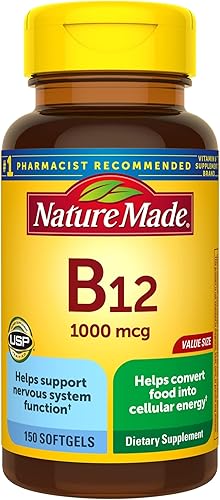What is Sciatica?
In order to answer that question, it's important to understand what sciatica is and how it affects the body.
According to The Cleveland Clinic, around 40% of all Americans will suffer from a level of sciatic pain during their life. Sciatic pain is a nagging pain that can significantly impact quality of life.
Sciatica buttock pain is numbness, tingling and/or pain that is due to irritation and inflammation of the sciatic nerve.
It exits your spinal cord in your lower back and travels out toward your hip and then down the back of your leg to your foot.
The sciatic nerve is the largest and longest nerve in the human body; and there is a sciatic nerve on both sides of your body and either one or both can be affected.
The nerve can be irritated or inflamed for many reasons including a herniated disc or piriformis syndrome.
Sciatica buttock pain can last a couple days or a couple months and the pain can vary from mild to intense. All factors considered, sciatic buttock pain can have a large impact on a person's life.
There are numerous treatment options that include more invasive things like injections or surgery.
It makes sense that researching and understanding how vitamins or supplements might help sciatic pain would be beneficial.
Which Vitamins or Dietary Supplements Help with Sciatica?
Magnesium
Magnesium is known to be a vitamin that helps with muscle and nerve function.
This is essential for people with sciatic pain because there is swelling around the nerve which causes nerve and muscle dysfunction.
This leads to significant pain and functional impairment. Taking magnesium may improve the nerve function of the sciatic nerve.
Vitamin D
Vitamin D is excellent for people with sciatic pain because it improves the strength of bones.
Part of the reason why people have sciatic pain is because the bones of the spinal column can become weak and compressed.
In turn, the spinal nerves are compressed which can cause sciatic pain.
The stronger the bones could be made by taking vitamin D, the less likely they would become compressed and cause sciatic pain.
Vitamin B12
According to a study in the European Review for Medical and Pharmacological Sciences, there is a link between oral B12 supplements and decreased low back pain.
The mechanism of improvement is because vitamin B12 is necessary for the formation of the myelin sheath which covers and protects the nerves.
A good analogy to explain the myelin sheath is like the casing outside of a sausage.
If the casing remains intact, the sausage on the inside is not damaged. The stronger the casing, the safer the sausage.
Same thing as with the nerve.
The stronger the myelin sheath, the less likely it is that the nerve is going to be damaged.
Taking a vitamin B12 supplement has been proven to act this way to protect the sciatic nerve and thus decrease low back pain.
Omega-3 fatty acids
Omega-3 fatty acids have become very popular in the news and health related fields over the last few years.
A great way to get increased omega-3 fatty acids in your diet is to include fish like tuna, salmon, cod, etc.
Omega-3 fatty acids help reduce inflammation. In turn, they could help reduce arthritis which is a direct partner of inflammation.
This can help prevent sciatic nerve impingement as the sciatic nerve exits the bones of the spinal column.
It can also help prevent inflammation and irritation of the sciatic nerve as it travels down the body. Specifically, this might be helpful for people that have sciatic pain related to piriformis syndrome.
Essentially, piriformis syndrome is when the sciatic nerve is inflamed and irritated in the buttocks region. Adding omega-3 fatty acids to your diet could significantly improve your sciatic pain.

Zinc
Zinc is important for cell growth as well as building proteins to help heal damaged tissues.
Zinc would be an excellent supplement to take when dealing with sciatic pain because it can help heal damaged tissues and thus, decrease pain.
Vitamin C
Vitamin C is known to have excellent anti-inflammatory properties.
Because sciatic pain is directly related to inflammation of the sciatic nerve, it would make sense that taking vitamin C would decrease the inflammation and in turn, decrease sciatic pain.
Vitamin Deficiency and Sciatica
Can Vitamin B12 deficiency cause sciatica?
There are various studies that demonstrate that taking Vitamin B12 supplements can decrease the severity of sciatica.
This is due to the fact that B12 is necessary to create the protective coating around a nerve and it presumes that more vitamin means more protective coating.
It is unclear if Vitamin B12 deficiency can be directly correlated as a cause of sciatica.
However, a 2022 study showed that “Peripheral neuropathy is the most common presentation of vitamin B12 deficiency.
Depending upon the type of nerve involved, it may present as pain, numbness, tingling, loss of sensation, decreased motor activity, or decreased muscle mass.”
Sciatica is not, by definition, a peripheral neuropathy but sciatica does present a similar mechanism of action as well as patient symptoms.
In that case, it makes sense that vitamin B12 deficiency might be a trigger for sciatica.
As discussed, adding a B12 supplement could be beneficial to those with sciatica and speaking to your doctor is a great idea before adding any supplement to your regime.
Read Related Article: What is the Right Vitamin B12 Dosage for Sciatica?
Can Low Vitamin D Cause sciatica?
Vitamin D is an essential component to bone health.
Sciatica can be caused when the bones in the back, known as vertebrae, deteriorate and pinch the sciatic nerve.
Because of this, a link can be made between low Vitamin D and sciatica.
Vitamin D deficiency can lead to osteoporosis and low bone density. Again, if there are issues with the bones in the spinal column, the risk of sciatica increases significantly.
Adding a Vitamin D supplement to your regime might be a great option. As always, speak to your healthcare provider before adding anything new.
In summary, there are many vitamins and supplements that could benefit people with sciatic pain.
Because sciatica pain is caused by various factors including inflammation, bone changes, etcetera, there are various options.
It is best to speak with your medical provider before starting any new supplements or vitamins.







